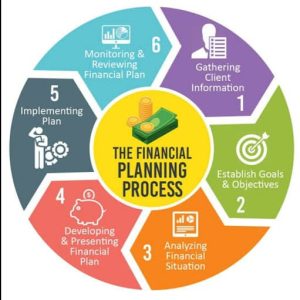Dreaming Of Moving Abroad Without a Degree? Here’s How!

Degree college can be overwhelming- research papers, internships, exploring things beyond academics, exams- the list is never ending. But, amidst all this, do you frequently daydream about moving overseas when you see those stunning photos uploaded by travel influencers? Even after finishing your degree, it’s never too late to pursue your dream of moving overseas! Wondering how? You can get a job there! Yes, finding work overseas is the ideal option if you want to travel and live abroad but your bank account is killing your spirit.
Companies are global and there are opportunities everywhere! However, this looks like a painstaking process, isn’t it? This is the reason we are here. It’s never too late to make working abroad work for you, whether you’re looking for methods to work abroad after college, making a mid-career change, or exploring employment abroad for those over 50. Learn how to leave India for a career overseas.
There are numerous meanings for the statement “working abroad.” Where do you choose to go? Whom do you work with? Do you plan out your duration in advance? It’s crucial to consider every aspect of working abroad as you choose the best route. Let us help you figure it out!
How To Kickstart Your Work Life Abroad?
1. Decide your field:
First of all, you need to be clear on what kind of job and in what field you want to apply for. This will require a lot of research and thinking. Reviewing international job boards and finding a position you can apply for in the country or countries where you want to work abroad is the first and perhaps most difficult process when looking for jobs abroad.
Prior to looking for a job, it’s crucial to think about the position you want, the industry you want to work in, and the talents you want to develop.
2. America? UAE? Belgium? Choose a country!
Pick a country where your degree is valued and you can actually showcase your skills. Find a country you’re interested in moving to that allows you to choose the type of job you want once you’ve made that decision. Think about taking a little trip abroad to get to know the people, familiarise yourself with the surroundings, and establish local connections. Utilise your employer’s resources and network to learn more about what a typical day might be like. Which areas are the best for living? How is the commute each day?
3. Look for a job of your that aligns with your degree and interest!
Understanding market trends might help direct your employment hunt. In case they come up during a job interview, keeping up with foreign media can help you better understand the culture and current affairs of the nation.
Look around your neighbourhood and go to international employment fairs. Another option to identify businesses hiring employees to work in their foreign operations is at international job fairs.
Rather than just applying straight through, say a UK company, in hopes of moving to London, apply for jobs with US companies that have offices around the globe. Websites like Indeed provide websites for each country where you may look for job postings.
If you can’t get a job right away, think about getting a temporary job so you can make money while you look for something else. You will have to do much more than simply upload your resume to a job board and wait for a call from an employer.
4. Localise your resume
Your Resume should contain keywords that are appropriate for the local language. If you’re fluent in the official language, it may also be advantageous to translate your resume. Some nations might prefer a longer, two-page resume over one that is shorter and closer to the point. Your CV must showcase both your qualifications for the position you’re seeking for and the company’s culture.
5. What comes first? Job or Visa?
Normally, IF you have the offer, you can get a work permit. Thus, landing a job is the first step. There are many systems, though, where you can acquire a work permit (or another document with a comparable purpose) before you begin your job search.
It’s vital to start the procedure as soon as possible—especially before you move to the nation where you wish to work—because some jobs require you to have a visa or work permit in order to work with them. Sometimes, getting a work permit or visa requires that your future employer agree to sponsor you.
You are allowed to travel and enter a nation with the aid of a valid work permit. An agency or program provider may be able to assist you with your visa, phone, and job placement among other things for a charge that varies from agency to agency.
Here’s The Secret Gateway:
Get the work of your dreams while living the life of your dreams! Apart from the basics, here are some things that you should consider when applying for a job abroad:
- Skills: The ultimate goal of every techie is to land a job abroad. Interviewers look for candidates who possess more than just excellent grades in the core stream and solid technical expertise.
Keep in mind that you will be up against the best minds in the host nation as well as specialists from other nations looking for work there. Here, leadership qualities are just as important as fundamental abilities.
Knowing when to use your skills and when to follow the rules is important. Fluency in the local language provides you an advantage over other applicants and increases your likelihood of landing a job.
- Plan your Finances: Plan your finances in advance to pay for daily necessities and indulge in travel (in addition to program costs and airfare). Make sure to raise a small amount of extra cash to be on the safer side. Before you travel, you must learn how to save for jobs abroad! Learn about the local costs for housing, food, and other expenses that will need to be taken into account.
- Networking: Finding online communities with people who share your professional interests is a great way to start networking worldwide and might even help you obtain your first job abroad. Connect with those that hire on behalf of potential foreign businesses. Maybe even ask for help by sending them a message. Continue to participate in these groups on Facebook and LinkedIn and respond to posts that interest you. Even if it seems like a long shot, send in your application for every job that piques your interest.
- Know the Country Well: It’s crucial to get ready for the cultural practices and etiquette of the country before choosing to work overseas. Once you accept the job and move, it’s crucial to consider how you will adjust to the local time zone since this might ease your adjustment.
Pack Your Bags, Get Ready!
Working overseas makes you a part of a wider picture, and employers today frequently seek out individuals with the tenacity and guts to establish a name for themselves.
Your life is improved by travelling or working overseas. Consider the stories you can tell your friends when you get back. “I travelled to Pamplona to witness the running bulls while I was working as an English teacher in Spain.” How many people have the ability to say that? You may! Don’t miss the chance to travel and see the globe.
If you are still confused about what country to choose and how to start working abroad, Mentoria promises to handhold you during your career discovery journey – from the time you sign up until you get into a career you love.













